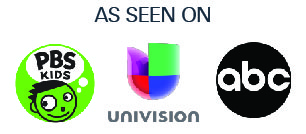I have worked in the field of Speech Pathology for 18 years now, and I wanted to provide you with some insight to what occurs when an endotrachael tube is removed from a patient in the intensive care (ICU) setting following a sudden onset of TBI (traumatic brain injury).
The patient is first assessed for vocal production. That is, we check to see if the patient is able to physically move their vocal cords. In some instances, there can be swelling in and around the area of the vocal cords secondary to trauma and the actual placement of the tube itself.
Secondly, depending on the part of the brain that is affected, we would then assess if there are deficits to the motor programming that controls one or both vocal cords. If there is a unilateral paresis or paralysis of one vocal cord, the voice could be very soft or breathy in nature.
Then we would assess the speech and language abilities of the patient. We would assess if the patient has a dysarthria in the face, tongue, lips or jaw that would impact articulation. We would also assess if the patient exhibits apraxia, a motor programming component to speech. A classic sign of apraxia is “groping” when attempting to communicate.
Next, language would be assessed. Language is divided into receptive (listening/reading) and expressive (speaking/writing) abilities. The left hemisphere of the brain controls language in most right handed individuals. A complete Aphasia Diagnostic Battery, such as the Boston Test of Aphasia or the Western Aphasia Battery would be implemented. One or both of these diagnostic batteries would give the clinician very specific data as to what breakdowns have occurred in expressive and receptive modalities.
Lastly, we need to evaluate swallowing. Most patients can exhibit signs and symptoms of dysphagia (a swallowing disorder) after sudden onset of TBI. Since most patients are unresponsive secondary to trauma, most have a nasogastric (NG) tube or a percutaneous endoscopic gastrostomy (PEG) tube placed for nutrition purposes. A Speech Pathologist, in conjunction with a radiologist will complete a modified barium swallowing assessment (MBSS) in the hospital to assess and determine the safest, least restrictive diet that a patient can safely tolerate. It is not uncommon for a patient to be non per oral (NPO) for weeks or months until the patient is alert enough to tolerate safe deglutition (swallowing). Types of dysphagia diets can include pureed, mechanical soft, chopped and regular foods. Liquids can be thin, nectar thick, honey thick or pudding thick consistencies.
Speech pathologist play a vital role in assisting patients recover voice, speech, language and swallow function, both on an inpatient and outpatient setting. I have provided evaluations and treatment in both settings for over 18 years now, and if you have any questions regarding speech therapy services in Tucson, please contact me here.





Pretty nice post. I just stumbled upon your blog and wanted to say that I have really enjoyed browsing your blog posts. In any case I’ll be subscribing to your feed and I hope you write again soon!
Do you people have a facebook fan page? I looked for one on twitter but could not discover one, I would really like to become a fan!
I am a CFY and just got my first PEG patient. Can you tell me what you think about pleasure feeding to keep swallow function intact? My patient has Hx of multiple strokes and poor cognition. I Am not very sure how to proceed. Thank you!!!!
This is a very good and important question. The most important aspect of this questions comes down to this: Risk versus Benefit. Is it worth the risk of possible aspiration pneumonia, sickness or even death for the benefit of oral feeding. Here are some considerations.
1. is this patient mobile: Patients who are mobile can sometimes work out aspirate/phlegm.
2. Is there a chance to perform a Modified Barium Swallow Study (MBSS) and rule out aspiration and determine the least restrictive diet (LRD)?
3. Cognition: Can this patient learn new techniques for safe swallow?
4. Carryover: Can the patient retain and carry over newly learned strategies? If the patient is stimulable for new strategies, then skilled ST is warranted.
5. Prior Level of Function: How long has this person been NPO (non per oral) and what does the family say? What does the PT/OT say? What does this patient’s physician say?
6. Site of Lesion: What do prior CT/MRI studies show? For example, brainstem lesions are generally more severe than cortical strokes and TIA’s.
7. What does your supervisor think about this case: During my CFY (clinical first year), my supervisor took 2 hours a week to discuss various patients and how to proceed with complex cases.
Thank you for the question. Best of luck in this most exciting field!
My dad just went to the hospital in upstate n.y . for gout , in the hospital he got sick one time , and they did a test and said he had aspiration , and put him on a honey thick , but when he went in for rehab ,they have him on pudding thick . ? Could you give me a web sight to learn more . And info on testing and how they get to that decision , when a patient eats regular food one min. and then has to have pudding thick ? Thank you for your time .. Anything would be helpful
Thank you for the question. There are many reasons that a physician would put someone on thickened fluids. Usually, a swallow test most commonly known as a Modified Barium Swallow Study can pinpoint the problem. More information on this exam can be found here. Make a point to speak to the Speech Pathologist where your father is receiving rehabilitation. I hope your father gets better soon.